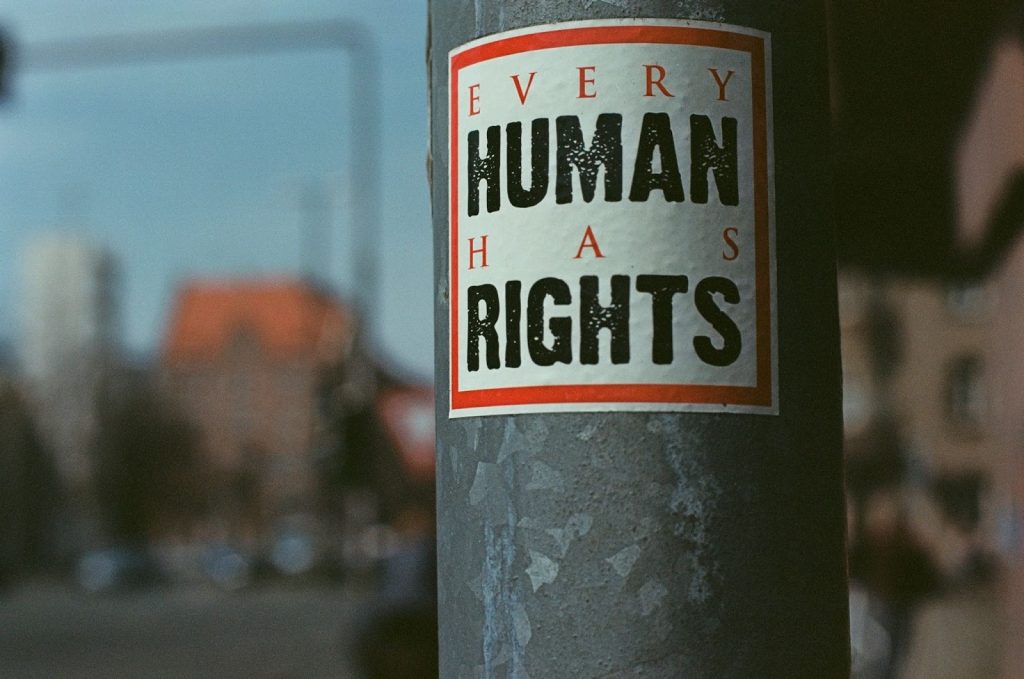WorkSheet for Lesson 4:
Fundamental Democratic Principles, CitizenDeliberation, and Deliberative Democracy
Learning Objectives:
1. Students learn about the principles of democracy (equality, human rights, free and fair elections, accountability, transparency, the rule of law, citizen participation)
2. Students learn the definition of Citizen Deliberation, and the five conditions for citizen deliberation (information, substantive balance, diversity, Conscientiousness,equal consideration)
3. Students learn about the four competing democratic theories (deliberative democracy, political equality, participatory democracy, non-tyranny)
Introduction
Since the middle of the 20th century, contemporary Western societies have evolved and flourished in a socio-political context widely known as “democracy” or “liberal democracy”. Even though democracy appears to be a “work in progress” in Europe as European countries do not experience the same level or characteristics of democratic rule, democracy as a concept has been as old as the ancient Greek civilisation from which it took its name.
Composed of the two Greek words “demos” (=people) and “Kratos” (=power, state),democracy includes a system of government in which people’s will, formally known as citizens, is the basis of all political decisions and actions. In the literature review,you can find several terminologies, descriptions as well as interpretations of the word “democracy”; this happens as a result of the focus areas and the critical analysis that individuals, scholars, experts and institutions do with regard to the concept of“democracy”.
Indicatively, we present here two definitions provided by two distinguished organizations, the Council of Europe and the UN. In particular:
…democracy can be thought of as the “power of the people”: a way of governing which depends on the will of the people…
Council of Europe, n.d.
…the fundamental principle of democracy is that the will of the people is the source of legitimacy of sovereign states…
UN, n.d.
As you can observe from these two definitions, democracy is inextricably linked to what is called “the will of the people”, even though the UN definition focuses here mostly on the importance of people’s will for state legitimacy.”, even though the UN definition focuses here mostly on the importance of people’s will for state legitimacy.
In this unit, we will focus on democracy by looking deeper into the fundamental principles that guide our social lives in modern European states, while we will explore two innovative processes that broaden the concept of democracy in our societies,namely citizen deliberation and deliberative democracy. Faced with inequalities,climate change and social unrest, European societies are called to re-consider the quality of their democracy as well as further democratise decision-making processes.To face contemporary challenges Europe needs more voices and more people actively participating in positively shaping its present and future.
The fundamental democratic principles
Follow us on this journey in the world of democracy and its guiding principles!
Equality
Equality is one of the most important democratic principles and it ensures that all people are equal before the law as well as that they are equally represented in policy and decision-making processes.
Equality in a democratic government is manifestedas people not being discriminated against because of their ethnicity, religion, gender or sexual orientation
.

Human rights
Human rights have been enshrined on December 10, 1948, in a bill of rights by the United Nations called the “Universal Declaration of Human Rights” (UDHR). These rights are supposed to be universal in nature, meaning that all people, regardless of the country they live in, should be entitled to them.
The very first article of the UDHR states that:
All human beings are born free and equal in dignity and rights. They are endowed with reason and conscience and should act towards one another in a spirit of brotherhood.
(UDHR, Article 1, 1948)
Following the UN’s paradigm, in 1950, the then newly established Council of Europe – a European institution aiming to safeguard human rights in the old continent-adopted its first convention, namely the “European Convention on Human Rights”.The convention is implemented in all 46 Council of Europe member states, while the European Court of Human Rights is in charge of overseeing its proper implementation
. Some of the most known human rights are freedom of expression,the right to life, liberty and security and freedom of movement and residence within the borders of each state.

Free and fair elections
In democracies, citizens are called to vote for their government and political institutions’ representatives every so many years (e.g. most commonly In Europe every4 or 5). For elections to be free, it entails that no intimidation, corruption or threats are imposed on citizens to influence their vote. Additionally, to be fair, all registered political parties should meet no obstacles in participating in the elections, while every citizen’s vote has to be counted.
Article 3 of Protocol 1 of the Council of Europe’s Convention on Human Rights states:
Everyone has the right to elect the government of his/her country by secret vote.Without this right, there can be no free and fair elections. It guarantees the citizens’ free expression, the proper representativeness of elected representatives and the legitimacy of the legislative and executive bodies, and by the same token enhances the people’s confidence in the institutions.
(CoE, Article 3, 1950)

Accountability
Accountability refers to appointed officials (cf. representatives in Parliaments,Senate, elected government bodies, judges, etc.) who ought to be accountable for their decisions and actions as they perform their duties.
On February 2022, the Council of Europe Committee of Ministers adopted specific recommendations(CM/Rec(2022)2) on the accountability of elected representatives and elected bodies at the local and regional levels that clearly state that:
- decision makers take responsibility for their decisions;
- those decisions are reported on, explained, examined and, where appropriate,questioned or sanctioned; and
- there are effective and proportionate remedies for inappropriate decisions oromissions and any resulting actions or inactions;
Transparency
For true democracy to thrive, citizens should have the right to be informed on what decisions are being made, when and by whom, as well as request regular updates on ongoing policy and decision-making procedures
. As the Organisation for Economic Cooperation and Development (OECD) highlights
Openness and transparency are key ingredients to building accountability and trust,which are necessary for the functioning of democracies and market economies.
(Gurría, A., n.d. OECD Secretary-General)
The rule of law
The “rule of law” principle ensures that no individual or citizen stands above the law no matter his/her/its socio-political and socio-economical identity and role. In democratic settings, the rule of law principle is inextricably linked to the smooth functioning of democratic societies, while its absence makes democracy defence less or even non-existent.
Citizen participation
Citizen participation is a fundamental component of a healthy and prosperous democratic society. It entails active involvement of citizens in shaping public processes and procedures and it can be manifested in a variety of ways, from voting or being a candidate in elections to participating in mini- informal-assemblies in your neighbourhood to pay your taxes or expressing your disappointment to political decisions by peacefully protesting.
Deliberative Democracy
This deliberative wave (OECD, 2022) as observed in recent decades is directly linked to a special type of democracy that dates back to the ancient Greek state of Athens.Widely known as “deliberative democracy”, this way of practising democracy entails active and direct citizen participation in shaping public policies and decisions going thus beyond simple consultation or regular democratic duties and roles that the majority of citizens are called to fulfil (e.g. voting in elections, paying taxes, etc.).
The learning objective of this sub-unit is to present students with the four competing political theories when it comes to democracy, namely deliberative democracy,political equality, participatory democracy and non-tyranny.
In particular, deliberative democracy is manifested in various forms and contexts depending on the degree of impact that citizen engagement in public policies is to be achieved. OECD in its publication “Innovative Citizen Participation and New Democratic Institutions: Catching the Deliberative Wave” (2022) outlines four models of deliberative processes, namely informed citizen recommendations on policy questions,citizen opinion on policy questions, informed citizen evaluation of ballot measures and permanent representative deliberative bodies.
Another focus area when it comes to democratic theory is the concept of “political equality”. The term refers to the fact of citizens having an equal voice over governmental decisions (Verba, S. 2001). Closely associated with the principles of“equality” and “the rule of law” that you saw before, political equality is often examined as a fundamental parameter that determines the quality of contemporaryd emocracies.
Another term that is frequently used in relation to deliberative democracy is“participatory democracy” which also highlights the importance of citizen engagement and active involvement in decision-making processes. A democracy in which citizens are more often called to participate in discussions that will shape its future is more stable, and more socially coherent while wider legitimacy is given to its political system.
Finally, to the extreme opposite of deliberative democracy, we find non-tyranny or more precisely non-tyrannical autocracies. These are usually regimes that are not elected by the people or they give an illusion of participation by orchestrating false elections and manipulating voting results.
References:
https://www.coe.int/en/web/human-rights-convention#:~:text=The%20European%20Convention%20on%20Human%20Rights%20is%20the%20first%20Council,prerequisite%20for%20joining%20the%20Organisation
https://www.coe.int/en/web/human-rights-convention/elections
https://civicsacademy.co.za/what-are-free-and-fair-elections/
https://www.coe.int/en/web/human-rights-convention/elections
https://www.un.org/en/chronicle/article/rule-law-and-democracy-addressing-gap-between-policies-and-practices
https://www.principlesofdemocracy.org/law
https://www.un.org/en/chronicle/article/rule-law-and-democracy-addressing-gap-between-policies-and-practices
https://www.oecd-ilibrary.org/governance/innovative-citizen-participation-and-new-democratic-institutions_339306da-en
https://www.congressfoundation.org/news/blog/1919-what-constitutes-effective-citizen-deliberation
https://zenodo.org/record/7198511#.Y8lAfHZBy3C
https://onlinelibrary.wiley.com/doi/epdf/10.1111/kykl.12295
https://www.russellsage.org/sites/all/files/u4/Verba.pdf
https://www.coe.int/en/web/participatory-democracy/about-participatory-democracy
http://www.sscnet.ucla.edu/polisci/cpworkshop/papers/Boix.pdf
https://rri-tools.eu/-/deliberative-futures-toolkit-toward-future-oriented-communities-and-decision-making
https://www.annualreviews.org/doi/10.1146/annurev.polisci.8.032904.154633
https://www.oecd.org/gov/open-government/eight-ways-to-institutionalise-deliberative-democracy.htm
It's Quiz Time!
It’s quiz time!
Here’s a fun quiz that you could use to test your understanding of the key concepts
covered in this lesson:
Quiz Summary
0 of 4 Questions completed
Questions:
Information
You have already completed the quiz before. Hence you can not start it again.
Quiz is loading…
You must sign in or sign up to start the quiz.
You must first complete the following:
Results
Results
0 of 4 Questions answered correctly
Your time:
Time has elapsed
You have reached 0 of 0 point(s), (0)
Earned Point(s): 0 of 0, (0)
0 Essay(s) Pending (Possible Point(s): 0)
Categories
- Not categorized 0%
- 1
- 2
- 3
- 4
- Current
- Review
- Answered
- Correct
- Incorrect
-
Question 1 of 4
1. Question
Which of the following examples are forms of deliberative democracy?
CorrectIncorrect -
Question 2 of 4
2. Question
The “Universal Declaration of Human Rights” (UDHR) was adopted by the Council of Europe in 1950:
CorrectIncorrect -
Question 3 of 4
3. Question
Which of the following elements are indispensable for citizen deliberation to take place:
CorrectIncorrect -
Question 4 of 4
4. Question
The fundamental democratic right of accountability means that citizens are free to vote in elections, while their vote remains secret
CorrectIncorrect





